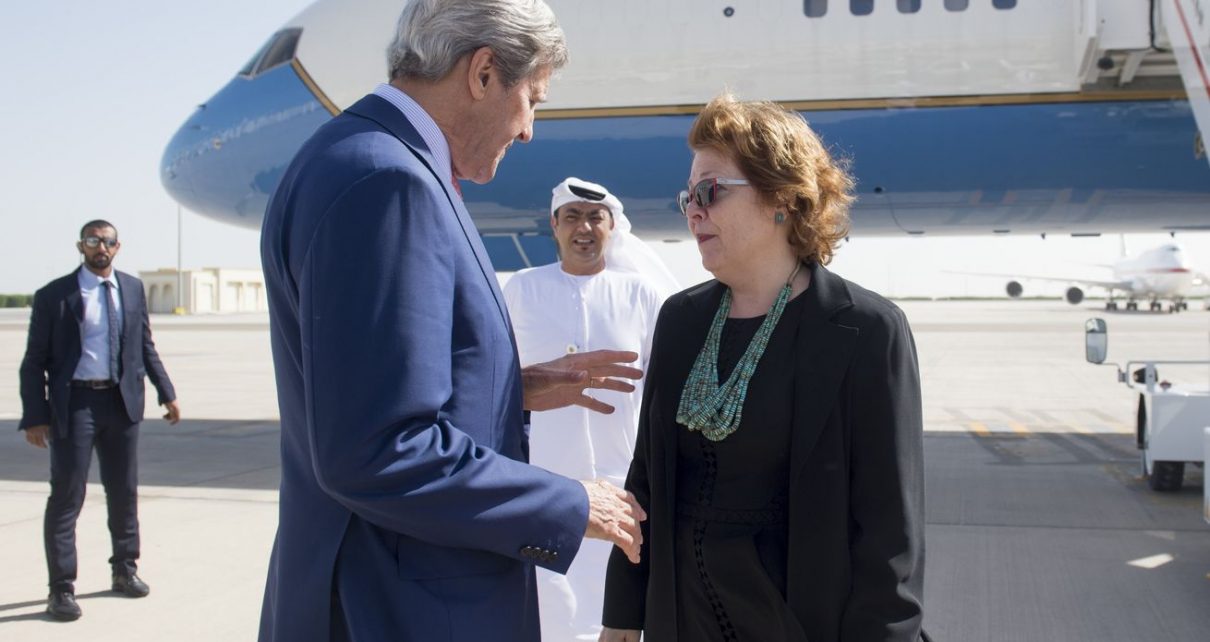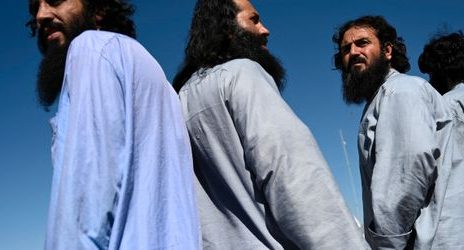
Barbara Leaf will join the White House’s Middle East team.
Barbara Leaf, a former ambassador to the United Arab Emirates and seasoned diplomat, is set to join President-elect Joe Biden’s National Security Council (NSC), according to multiple sources familiar with her pending appointment.
Leaf will join the team led by Brett McGurk, who was named last week as the coordinator for the Middle East and North Africa at the White House. That makes sense, as Leaf has spent the majority of her career handling issues in the region, including separate stints as a top State Department official for the Arabian Peninsula and for Iraq, and as the agency’s first director of the Office of Iranian Affairs. She also served in Israel, Egypt, and Tunisia, among other assignments.
After leaving government in 2018, Leaf joined the Washington Institute for Near East Policy think tank in Washington, DC. It was there that she offered insights on America’s relationship with the UAE — a key ally in the Gulf — that country’s burgeoning relations with Israel, as well as America’s diplomatic presence in Iraq.
In December, Leaf spoke to me about an impending $23 billion arms sale to the UAE that the Trump administration wants to expedite before the new administration takes over. While some worried the sale of advanced fighter jets, drones, and bombs would make the Gulf nation a stronger regional player — perhaps willing to use its newfound might to attack Iran — Leaf told me she didn’t fear that possibility.
“This won’t change the military balance in the Middle East,” she said. “Iran’s missile and nonconventional arsenals are formidable and could wreak immense damage, even if the UAE gets the F-35.”
Sources said she’ll work on America’s relations with Gulf allies while on the NSC, though the exact parameters of her appointment are unclear. That’s normal at this stage, and the issues she’ll lead will become clearer as the retired ambassador spends more time at the White House.
Still, a Gulf portfolio would be a tricky one, as Biden has already promised to extricate the US from the Saudi-led war in Yemen and vowed to reform ties with regional allies. That could put Leaf at the center of sensitive and potentially controversial foreign policy decisions right from the start.
Some at the State Department are already looking forward to seeing how she’ll handle her role. “She knows all of Near Eastern Affairs quite well, so I expect her to work well with State,” a diplomatic official told me, speaking on the condition of anonymity because they weren’t authorized to talk to press.
Leaf declined to comment, and Biden’s transition team said it had no personnel appointments to announce.





